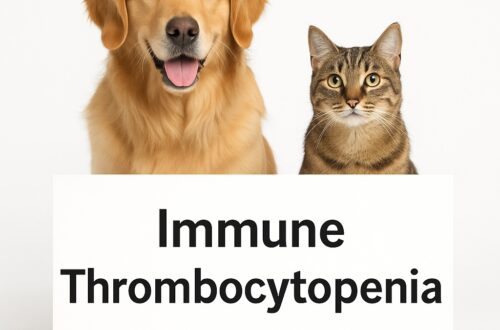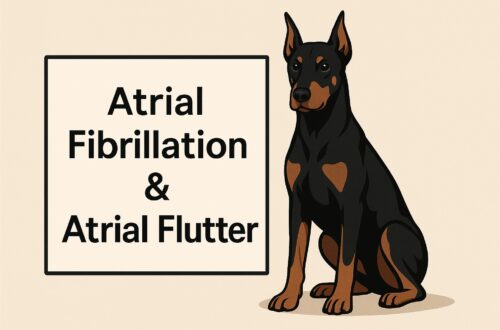“I had no idea there were specialists for pets!”
I hear that same statement from pet parents day-in and day-out. So I’ve started this blog in an attempt to (hopefully) increase awareness and visibility of the incredible work board-certified veterinary specialists do every day. Please know the content of this blog is by no way meant to besmirched the truly extraordinary work of my colleagues in primary care – indeed many specialists’ pets have primary care doctors! I believe in the “triad of care” – pet family, primary care doctor and veterinary specialist – all partnering together in a concerted effort to maximize the best possible outcome for a pet!
So what better way to start this blog than to give you some background about what a veterinary specialist is?! But first, one needs to understand the intensely competitive pathway to becoming a Doctor of Veterinary Medicine in the United States.
A veterinarian in the USA must earn an undergraduate degree (most commonly a Bachelor of Science or Bachelor of Arts), a task that traditionally takes 4 years to complete. S/he then attends an accredited veterinary college/school for another 4 years (if s/he is talented, qualified and lucky enough to gain acceptance). Upon graduation, s/he must pass rigorous national and state board examinations before s/he can practice veterinary medicine. Every veterinarian in the United States completes this process. They shed blood, sweat, and tears, and accept often crushing debt to have the privilege of entering into a profession they find uniquely rewarding on so many levels.
Sometimes one yearns to (try to) learn more – to focus on a specific area of veterinary medicine such as cancer treatment or heart health. For me, I have always been drawn to the rush of emergency medicine and the requisite attention to detail in the intensive care unit (read anal-retentive perfectionist). It’s true I’ve known I was going to be a veterinarian since I was 5 years old, but I have also known I was going to specialize in emergency/critical care since I was 16. Becoming an internal medicine specialist was honestly not something to which I gave any thought until my 4th year of veterinary school; one of my professors suggested I consider pursuing this specialty too. Well, an internship and 2 residencies later, I can unequivocally say I’m so glad I chose the specialties I did – they complement each other well, and humble me every day!
So what additional education does a veterinary specialist have to complete? One must complete more extensive clinical training to gain experience in a particular area of practice. This schooling includes a 1-year rigorous internship and a residency that is 3-5 years in length (each specialty has its own specific requirements). One should note that internship and residency training is not required for veterinarians as it is for medical doctors (MDs). According to the American Medical Association (AMA), all MDs must complete a residency program that is 3-7 years in length, and the first year of residency is commonly called an “internship” (although the AMA no longer uses this term).
The culmination of a veterinary residency program is successful passing of an intense, multi-day, board-certififying examination (and some specialties have more than 1 test). To be able to sit for this examination, a qualified doctor must meet very specific criteria, including demonstrated expertise in specific skills and procedures, prowess in teaching, and publication of a research paper in a peer-reviewed medical journal. I have taken 3 specialty board examinations (2 required for internal medicine and 1 for emergency/critical care) – such tests are hellish and soul-crushing, but also necessary evils in the training of veterinary specialists.
Currently the American Veterinary Medical Association (AVMA) recognizes 21 registered veterinary specialty organizations (RVSOs):
- American Board of Veterinary Practitioners
- American Board of Veterinary Toxicology
- American College of Laboratory Animal Medicine
- American College of Poultry Veterinarians
- American College of Theriogenologists
- American College of Veterinary Anesthesiologists
- American College of Veterinary Behaviorists
- American College of Veterinary Clinical Pharmacology
- American College of Veterinary Sports Medicine and Rehabilitation
- American College of Veterinary Dermatology
- American College of Veterinary Emergency and Critical Care
- American College of Veterinary Internal Medicine
- American College of Veterinary Microbiologists
- American College of Veterinary Nutrition
- American College of Veterinary Ophthalmologists
- American College of Veterinary Pathologists
- American College of Veterinary Preventive Medicine
- American College of Veterinary Radiology
- American College of Veterinary Surgeons
- American College of Zoological Medicine
- American Veterinary Dental College
The AVMA is also considering recognizing the following proposed RVSOs:





Great blog! Best of luck!
Thanks so much for the support Dr. Walters. As you well know, animal owners simply don’t know veterinary specialists exist, so I’m hopeful my blog will help shed some much-needed light. I hope you will continue to share my posts with your clients!
Amen! This site is long overdue! Thank you for educating pet owners that there are specialists in veterinary medicine!
Thanks Dr. Tiches – I really appreciate the support! I truly hope you will continue to help me inform pet owners about the availability of veterinary specialists like you by sharing my blog with your clients.
Before our dog Schatzi became ill, we had no idea that there were specialists available! We were told by her veterinarian that we would have her 1 to 2 month at the most. A retired veterinarian told us not to waste our money with treatments and to save it towards a new puppy! You can imagine how worried we were before meeting with Dr. Byers.
7 months have past and we have our old Schatzi back, as good as new! We are vigilant in her care and let her dictate our lives ( well, she always did anyway). As long as she has no pain and has a good quality in life, we will do whatever she needs; in turn we just get to love her a little while longer thanks to the treatment and guidance of Dr. Byers and all the caring staff at Midwest Veterinary Specialty Hospital!
Thanks for the awesome comment Mrs. Schmidt! I really appreciate your support of this blog. As you know, too few parents know that pets can have specialists too! Please continue to help spreading the word by sharing this blog with all the pet parents you know!